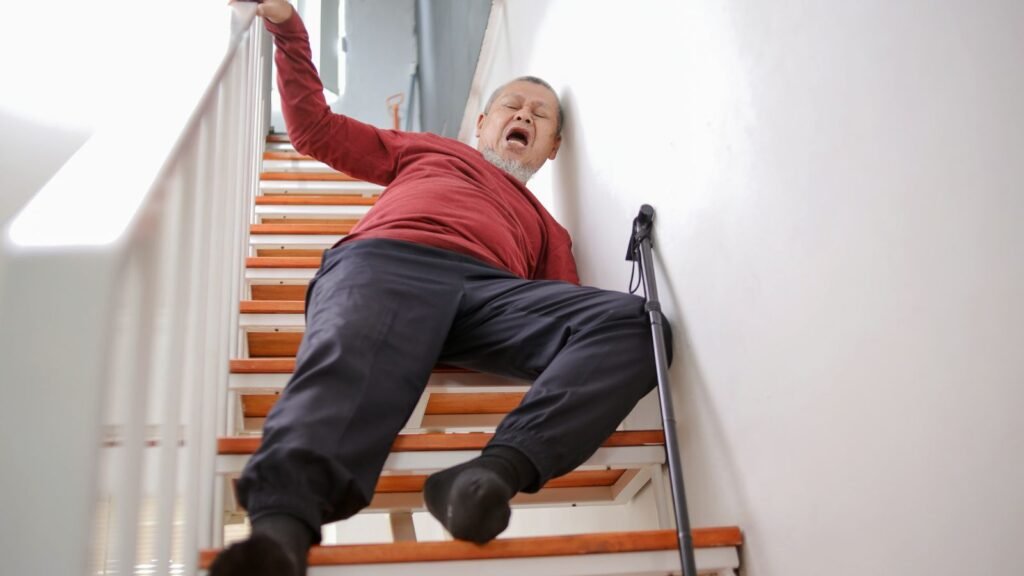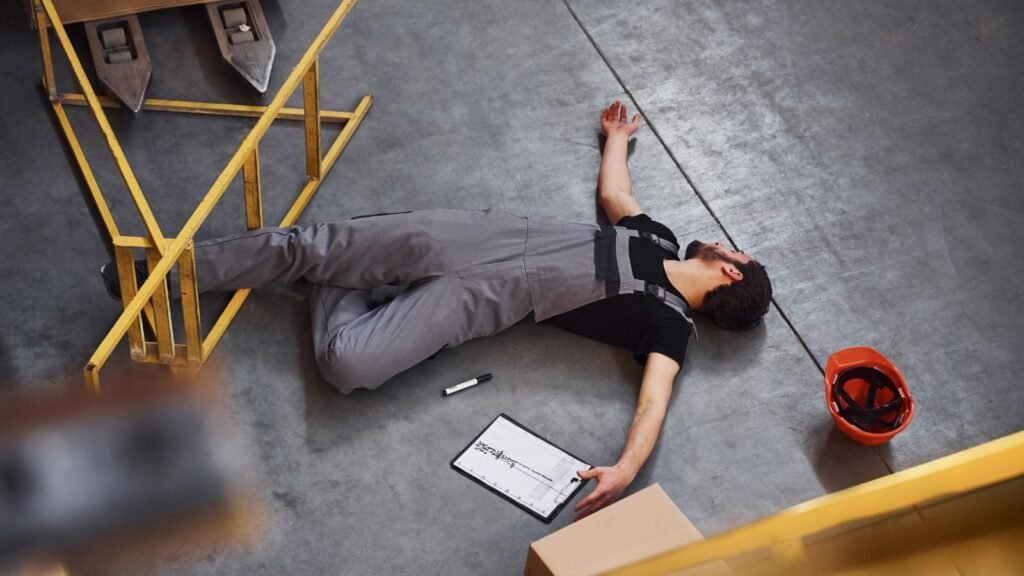
Yes, it can. A slip and fall may seem minor, but it can cause severe brain injuries. Some may even cause permanent brain damage.
This type of injury may impact your memory, mood, speech, or control of movement. That’s why it’s so important to treat any fall as serious, especially if you might have hit your head.
What is a Brain Injury?
A brain injury occurs when a force impacts your head or is shaken hard enough that it can interfere with normal brain function. Some brain injuries can be mild, healing within a few weeks. Others can be more severe, leading to life-long problems.
Common symptoms include:
- Headaches
- Dizziness or nausea
- Memory loss
- Mood changes
- Trouble concentrating
- Blurred vision
- Balance problems
Some symptoms can show up immediately. Others can be delayed for hours and sometimes even days.
How Do Slip and Fall Accidents Cause Brain Injuries?
If you fall, you might hit your head on the ground, a wall, furniture, or some other object. That sudden force can injure the brain, which is encased in your skull. The quick impact could cause the brain to shift due to the force, or it could swell. In either case, damage can occur.
Even a fall from a short distance can do severe damage if your head strikes the ground. Older adults are especially vulnerable to head injury because their bones become weaker and their balance declines.
Can It Lead to Permanent Brain Damage?
Yes, it can. A substantial head injury can affect you mentally, emotionally, and physically for the rest of your life. You might:
- Struggle to work
- Need help with daily tasks
- Rely on medication or therapy
- Lose your independence
These changes can be complex for the individual and their family. Recovery may not happen for months or years — and in some cases, a person may never fully recover.
Can You Claim Compensation?
If you think someone else’s negligence caused the fall, you may be able to claim brain injury compensation. This includes:
- Slips in supermarkets or shops
- Falls in public places
- Unsafe floors at work or in rented property
To claim, you’ll need to show that someone was responsible. For example:
- There was a wet floor with no warning sign
- The floor was broken or uneven
- The lighting was poor, making it hard to see
You usually have three years from the date of the accident, or when you first became aware of the injury, to make a claim.
How Claim Central Helps You
Claim Central helps people who have suffered injuries in slip and fall accidents. Their representatives are trained to handle both head injury claims and brain injury claims. They will take you through the entire process — clearly and concisely.
Here’s what they offer:
Free case check – Find out if you have a claim
No win, no fee: You only pay if your claim wins.
Experienced solicitors – Experts in brain injury claims
Support at every step: From start to finish, you’re not alone.
They will gather medical reports, liaise with the insurers and help you to build a strong case. This way, you will be able to concentrate on your recovery while they deal with the rest.
What Should You Do After a Slip and Fall?
If you think your head injury is severe, act quickly:
Get medical help: Even if you feel okay now.
Take photos – Of where you fell and what caused it.
Keep records – Of doctor visits, symptoms, and time off work.
Talk to Claim Central: They’ll check your case and explain your rights.
Final Thoughts
A slip and fall can have serious long-term effects if it causes a brain injury. Do not ignore symptoms, and do not delay seeking help. If the slip and fall wasn’t your fault, you may have an entitlement to compensation.
Claim Central can help you and fight for the support that you need.
Also Read : Slip, Trip, and Falls Safety Guide







